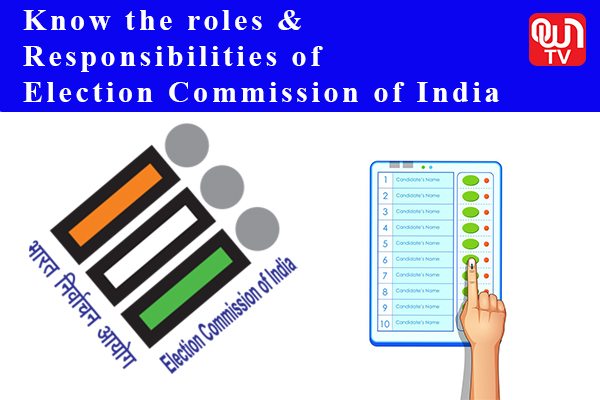Responsibilities of Election Commission of India? Know its Importance|SSC 2019-20
Responsibilities of Election Commission of India: Know its importance
The Election Commission of India is an independent body of Constitution of India. It is the body that administers and monitors the elections and the related activities. The rules and regulations relevant to the Election Commission of India is mentioned in the Constitution of India. The key objectives of ECI include defining the course of elections at various levels. Today, we will be discussing the responsibilities of the Election Commission and its importance.
Read more: Climate Change: How it is impacting world?
Read more: RBI and its monetary policy for 2019: Important Facts

As per Article 324 of the Constitution, the Election Commission holds the controlling of elections for the state legislature, the parliamentary elections, the Vice President and the President office of the country. The body has a Chief Election Commissioner and two Elections Commissioners as the representatives. All the decisions are taken considering the majority.
Clauses of Article 324
1.EC will have superintendency of electoral roles, the conduct of Parliament and to the Legislature of every State and of elections to the offices of President and Vice-President held under this Constitution.
2. It should consist of Chief EC and a certain number of ECs which the president may fix from time to time. The appointment of Chief EC and the EC are due are by the provisions of law made by the Parliament, by the President.
3. Before each general election to the House of the People and to the Legislative Assembly of each State, and before the first general election and thereafter before each biennial election to the Legislative Council of each State having such Council, the President may appoint the Regional Commissioners with EC’s intervention.
The regional or the Election Commission can only be removed by recommendation of CEC.
The CEC can be removed by the parliament of India in support of the resolution stating incapability and misbehaviour passed by both the houses.
Roles and Responsibilities of Election Commission
1. It guards the free and reasonable conduct of elections.
2. It formulates the Model Code of Conduct before the elections. This code is to be followed by all the candidates and parties in order to maintain democracy.
3. It regulates the registration process for elections by registring the eligible and new voters.
4. It presents the budget, the expenditure of the whole election process. It monitors every spending throughout the elections.
5. The political parties are liable to submit the Election Report to the Election Commission in order to get the tax benefits. Also, the Commission checks that the parties are submitting the financial audit reports regularly.
6. It also holds the responsibilities of deciding the constituencies and preparing the electoral rolls.
7. It also appoints tribunals to take a decision on disputes related to election conduct for the legislatures and parliament.
8. It also allows the election symbols to candidates and parties.
The Election Commission of India is an important part of the election process. The free and fair conduct of an election campaign is entirely dependent on the Election Commission of India. All the bodies and the parties are accountable to the Election Commission of India and no step throughout the election process is taken without its notice.
For more such informative articles stay tuned to OWN TV.
